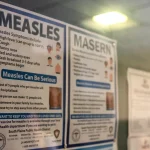A malaria drug that has been tested as a treatment for coronavirus does not save lives, one of the world’s largest trials shows.
Hydroxychloroquine received global attention after being promoted by Donald Trump, and then controversy after studies on it were retracted.
The drug has now been pulled from the UK’s Recovery trial, which is run by the University of Oxford.
The findings have been passed on to the World Health Organization.
Back at the start of the pandemic, laboratory studies had suggested the malaria drug could affect the virus. Small-scale studies in China and France then hinted it might help patients.
There was a huge amount of hope, as the medicine is cheap and has been safely used to treat malaria and conditions such as lupus and arthritis.
However, the evidence supporting its use for coronavirus has been weak.
‘Not a treatment for Covid’
That is why the data from the Recovery trial is crucial. It is the first to test the drug in large numbers of people in a thorough clinical trial.
More than 11,000 patients with Covid-19 are taking part, with 1,542 patients given hydroxychloroquine.
Due to mounting controversy about the drug, the UK’s drugs regulator last night asked the Oxford researchers to review their data.
The results showed 25.7% of people taking hydroxychloroquine had died after 28 days. This compared with 23.5% who were given standard hospital treatment.
“This is not a treatment for Covid,” said Prof Martin Landray, part of the Recovery trial. The trial immediately stopped using the drug.








